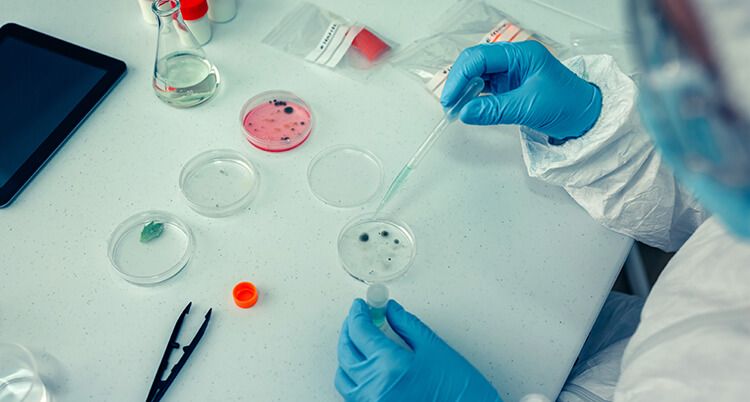
What are the body fluid cultures?
The body fluid cultures are microbiological tests performed on the various fluids of the human body.
They include a wide range of diagnostic tests that lead to the detection, isolation, and identification of pathogenic microorganisms.
Cultures can be done for the following biological fluids:
- Fluids of closed cavities, such as synovial fluid.
- Fluids of closed cavities or organs that communicate with the environment, such as sputum and semen.
- Secretions or swabs of open cavities, such as oral fluids, nasal fluids, vaginal fluids, urethral fluids, excrement, and urine.
What do body fluid cultures detect?
The body fluid cultures detect pathogenic microorganisms (common germs and fungi), which grow in aerobic, anaerobic, and CO2 conditions.
Specialized cultures can detect bacteria, such as mycoplasma, ureaplasma, campylobacter, or Yersinia enterocolitica.
What is the procedure of a body fluid culture?
Depending on the examination, the sample remains for a specific time in conditions that are considered optimal for the growth of microorganisms.
If the culture is positive and pathogenic microorganisms are detected, then an antibiogram is performed.
An antibiogram is an overall profile of antimicrobial susceptibility testing results of a specific microorganism to various antimicrobial drugs.
Cultures of biological fluids at PLUS microbiology laboratory
PLUS diagnostic center performs daily cultures of biological fluids and parasite tests.
Using state-of-the-art analyzers and modern diagnostic methods, we undertake the conduction of the following diagnostic tests:
- vaginal and cervical fluid cultures
- cultures of nasal, pharyngeal, bronchial, or oral secretions
- urine and stool tests
- sperm analysis
- prostatic and urethral fluid analyses
An experienced Medical Biopathologist checks the results, which are then delivered to the patient in a short time, depending on the examination.

Roche Cobas Urine 6500
State-of-the-art analyzer for quick and accurate results in urinalysis.

Memmert Incubator IN30
Incubator with natural air circulation for stable performance and reliability.

Specialized Staff
Well-trained staff in the analysis and proper management of biological samples.

Internal Control
Adherence to all prescribed procedures and protocols for valid results.
Frequently Asked Questions
The vaginal fluid culture detects and identifies microorganisms that exist in the vagina.
The specific diagnostic test takes place when there is discomfort that could be the result of an infection of the lower genital tract by fungi, bacteria, or parasites.
Increased vaginal fluids, pain, burning, or itching in the vaginal area are potential symptoms of inflection.
In case of a positive result, an antibiogram is performed to find the appropriate targeted antibiotic therapy.
The test can also be part of a prenatal checkup.
Before sampling, external washing of the area with soap and water is recommended. Internal washing or the use of vaginal suppositories are not allowed. It is also advisable to abstain from sex for three days before the test.
For stool test, the patient or someone from his environment collects the sample in a sterile container.
A small amount of sample (8-10 grams) is sufficient and can be collected at any time of the day.
The sample must be delivered to the laboratory within two hours or should be stored in a fridge.
You should close the sterile plastic container very well to prevent possible leakage.
A stool parasite test is a simple diagnostic test for the detection of parasites in a stool specimen.
The patient or someone from his environment collects the stool sample, after the intake of a saline laxative.
The laxative is taken in the evening, while the sample is collected in the morning and is handed over to the lab within one hour.
For greater accuracy of results, it is recommended to collect three samples within 10 days.